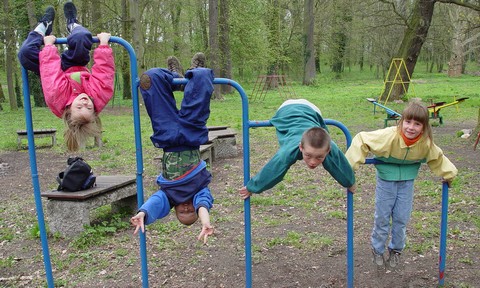
Children love to play. Although much of their time in my church setting is structured for active worship and learning in small and large group contexts, we do allow a component of supervised play as time permits. I do not view this as a necessary evil to accommodate services which run long or parents who are late to pick up their children after service.
Rather, we often schedule such playtime into the heart of the session’s activities as a core component of their campus experience. It is an opportunity for children to practice the biblical principles they are learning in class or the worship experience. Here is an outline of what has been helpful to me in making this a profitable time. Click here to share your comments.
Connecting With Children During Supervised Playtime
1. Staffing: I make sure I have plenty of adult and/or mature teen colleagues to supervise the children. For older children (ages 7-12), I recommend one supervisor per every 8 to 12 children. For younger children (ages 3-6), I recommend one supevisor per every 4 to 8 children.
2. Training: I train my co-workers concerning the intent of supervised playtime.
- The playtime is meant to allow children freedom to have a short adventure in the confines of our gymnasium or on our outdoor playground.
- The playtime allows the children to interact with one another and the adult workers in a natural way. Opportunities to apply the principles of the day’s lesson will frequently surface. Perceptive adults can help children navigate their disagreements, frustrations, etc. by reminding them of what they are learning in class and helping them to apply the principles in real-world situations via play.
3. Intentional Talking: There are some days where I will sit off to the side and call to the children one-at-a-time to come visit with me for a couple of minutes. I tell the children beforehand that I am going to do this. They like the face-time with the children’s pastor. I enjoy getting to know them a little better. (Related: 100 Questions to Get Kids Talking)
- During our conversations I ask them one or two simple questions, such as how can I be praying for them, and how is their week going. I change the questions up occasionally, but the key is to make them simple so a child can easily understand and respond. Often, their responses are heartfelt and profound: mom and dad are fighting; grandma or grandpa is dying; older brother committed suicide; bullies are picking on the child at school or on the playground; does God really love me? These sessions have proven to be an integral part of how I hear the hearts and thoughts of the children I pastor.
- During a twenty minute play session I can touch base with ten to twenty children. The conversations are never very long, and some are quite brief. If a longer conversation is needed, I am able to follow up later with them, as I have done with specific situations in the past.
- For larger groups, I find it better to break the children into small groups with adult leaders who can ask the same kinds of questions.
4. Make it Fun: I like to do silly things to create a sense of camaraderie. For example, in past years I used to carry a whistle around my neck while we were outside in the playground. I taught the children to respond to two types of whistles. (Related: Should fun be a value in children’s ministry?)
- One long whistle blow means all children must come to me or another adult supervisor immediately.
- Two short whistle blows means we all yell out, “Praise the Lord!” I would do this occasionally during a ten to twenty minute play session.
Used in moderation, supervised play time is a beneficial tool to help pastor children and their families. It provides a safe environment for their needs to surface. Often I will discuss with parents the interactions I have with their children, particularly where there are concerns. On the rare occasion where there might be a concern about the parent, I consult with my pastor concerning the best course of action.
More Tips for Relating to Kids: Then read our post about getting to know kids in your ministry, or find out the 7 most important things you can tell a child.

